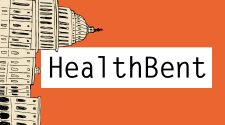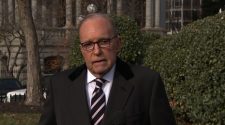As we approach the Nov. 3 elections, I’ve been reflecting on the words of the English philosopher John Stuart Mill, from 1867: “Bad men need nothing more to compass their ends, than that good men should look on and do nothing.”
For the past four years, we have witnessed something deeper than ideology dividing us; idolatry and a cult of personality have replaced qualities of true leadership. We have also observed an alarming silence from many public officials at all levels of government as our country has become a nation that many hardly recognize. In November, voters can break that silence when they cast their ballots.
As you’d expect of the opposition party, since President Trump’s inauguration, Democrats have been vocal in their criticisms of his actions and public behavior; the House voted on partisan lines to impeach him. And there has been an unprecedented number of White House staffers and other top and long-term officials who, after being fired or resigning in protest, have expressed major concerns over the president’s fitness for the job. Many have appeared on national news programs, or written books and op-eds, to tell their stories.
But what has been lacking was for elected officials within the president’s own party to have provided guardrails in the form of constructive criticism and, when necessary, to publicly disassociate themselves from him and some of his most egregious statements and actions. Their failure to have effectively done this makes them seem complicit.
Even President Obama, on the way to his party losing control of both chambers of Congress, had to deal with criticism from a group of Democratic congressional conservatives called the Blue Dog Coalition. Regardless of what one might think of the tactics and actions of the Blue Dogs, they served as a guardrail against Obama drifting too far to the left, where the progressive wing of his party wanted him to go. They were anything but silent.
As a former elected official, I find it baffling that so few seasoned elected politicians of the president’s party will challenge him, even when he has clearly done something against the national interest, such as politicizing the wearing of facial masks to protect against the coronavirus that has taken more than 220,000 American lives. Trump’s fellow Republicans seem afraid they will become targets of his next Twitter rant.
Even worse, when presented by the FBI with strong evidence of a plan by an anti-government group to kidnap Michigan Gov. Gretchen Whitmer, try her for treason, and perhaps even execute her, support for her well-being has been expressed mostly along partisan lines. On the campaign trail, the president has even joined in with his followers who have chanted “lock her up,” referring to the Democratic governor who has moved methodically, based on scientific and medical advice, in reopening her state’s economy and schools.
Maybe I am out of touch, or maybe I simply can no longer stomach the highly partisan nature of today’s politics. But my mother often said to me as I was growing up that “right is right and right don’t wrong anybody.” The idea that there are universal values more important than politics, tribalism and personal gain has stayed with me. I was taught that we should always strive to protect our good names because in the end this is all we will take with us. Speaking out against wrong has been a value I’ve always cherished, and I don’t believe one needs a doctorate in theology to figure out right from wrong.
From this vista, I wish more public leaders would take moral instead of political stances on big issues that speak to the bedrock values of who we are as a nation. Some of the important questions we should be asking ourselves as purported leaders of democracy are:
Is it wrong to separate immigrant children from their families and detain them in facilities characterized as cages? Is it wrong not to have consoled the families of those who’ve lost loved ones to police violence? Should our leaders show empathy for the racial pain this country has inflicted upon tens of millions of Black citizens by being willing to tackle systemic racism? Should we be in court today attempting to end the Affordable Care Act while the country is in the middle of its worst pandemic in 100 years and 30 million Americans would lose their health insurance? And is it acceptable to lie to the American people over and over again in the face of facts?
Mill is not the only prominent voice to have warned of the dangers of silence. Later and closer to our time, the Rev. Martin Luther King Jr. and other prominent voices from the civil rights movement did as well. King once said, “Our lives begin to end the day we become silent about things that matter.” Congressman John Lewis, who died in July, urged that “when you see something that is not right, not fair, not just, you have to speak up. You have to say something; you have to do something.”
When I cast my ballot this November, it will be against the disturbing silence that has engulfed this country for the last four years, but it will also be for the return to the values of honesty, human rights and caring for those described in the New Testament as “the least of these” — the values that once made our imperfect union the envy of the world. Our votes this year can break the silence and help us rebuild the world’s trust.
Governing‘s opinion columns reflect the views of their authors and not necessarily those of Governing‘s editors or management.
















